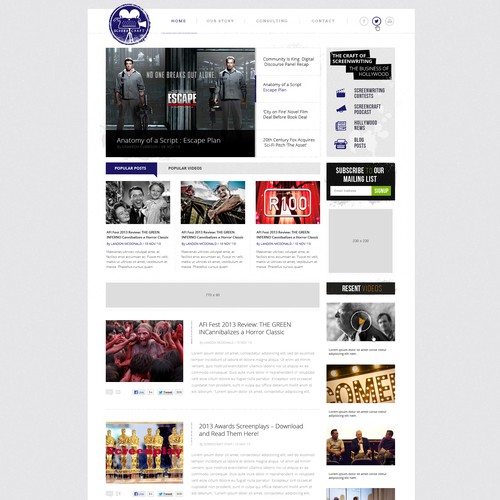Our News Websites Ideas
Our News Websites Ideas
Blog Article
The 7-Minute Rule for News Websites
Table of ContentsThe Definitive Guide to News WebsitesNot known Details About News Websites The Definitive Guide to News WebsitesNot known Details About News Websites Facts About News Websites Revealed
It was down in the UK and Brazil however up some other countries, such as Greece, Bulgaria, and Poland (News Websites). This year, for the first time, we inquired about the various means that people stay clear of the information and located that around half of avoiders (53%) were attempting to do so in a broad-brush or periodic means as an example, by switching off the radio when the news came on, or by scrolling past the information in social media sitese.g. scrolling previous information, altering channels when information comes on. of avoiders examine sources much less usually. e.g. restriction to specific times of day, switching off alerts, etc. of avoiders avoid some topics. e.g. subjects that bring down state of mind or increase anxiety. You stated that you try to actively prevent information.

I'm probably choosing to review more light-hearted tales than I used to at the moment. M, 51, UK Turning my back on information is the only means I feel I can cope occasionally. I have to purposely make the effort to avert for my very own mental wellness.
The 4-Minute Rule for News Websites
Selective avoidance of Ukraine information was highest in a lot of the countries closest to the dispute, reinforcing findings from our extra survey last year, right after the war had actually begun. Our information might not suggest a lack of rate of interest in Ukraine from close-by countries but instead a need to take care of time or shield mental health from the really genuine horrors of war.
Comparing Finland with a politically polarised country such as the USA (see next graph) that is much less impacted by the battle, we find a very different pattern of topic avoidance. In the United States, we find that customers are most likely to avoid subjects such as nationwide politics and social justice, where disputes over issues such as gender, sexuality, and race have actually come to be extremely politicised.
American politics are quite hazardous nowadays. I find occasionally that I have to disconnect from stories that just make me angry. F, 61, United States For some people, bitter and dissentious political disputes are a factor to switch off news completely, but also for some political upholders, evasion is typically regarding shutting out viewpoints you don't want to hear.

The 15-Second Trick For News Websites
Some are aiming to make information much more available for hard-to-reach groups, widening the information agenda, commissioning even more motivating or positive information, or accepting useful or remedies journalism that give people a sense of hope or individual agency. In our survey this year, we asked respondents concerning their interest in these various approaches.
This clarifies why stories like Ukraine or national politics do well with information regulars yet can at the exact same time transform much less interested users away (News Websites). Selective avoiders are much less interested in all kinds of information than non-avoiders but in loved one terms they do seem to be more interested in positive or solutions-based information

The Best Guide To News Websites
2023). This may be true in the moment, but over time it appears to be leaving many dig this individuals vacant and much less click reference satisfied, which may be threatening our connection with and count on the news. Across markets, overall trust in information (40%) and trust in the sources individuals utilize themselves (46%) are down by a further 2 percentage factors this year.
With the rear-view mirror, the COVID-19 count on bump is plainly visible in the complying with graph, though the instructions of traveling afterwards has actually been mixed. In some situations (e.g. Finland), the depend on rise has actually been kept, while in others the upturn looks more like a blip in a story of ongoing long-term decline.
A few of the greatest reported levels of media objection are found in nations with highest degree of suspect, such as Greece, the Philippines, the United States, France, and the United Kingdom. The most affordable degrees of media objection are commonly in those with greater degrees of count on, such as Finland, Norway, Denmark, and Japan.
Fascination About News Websites
This year we asked respondents concerning their preferences for text, audio and video clip when eating news online. Typically, we find that the bulk still choose to read the news (57%), as opposed to watch (30%) or pay attention to it (13%), yet younger individuals (under-35s) are most likely to listen (17%) than older groups.
Behind the averages we locate substantial and unexpected nation differences. In markets with a strong analysis practice, such as Finland and the UK, around see this page eight in 10 still like to read on-line information, yet in India and Thailand, around 4 in 10 (40%) say they choose to view information online, and in the Philippines that proportion is over half (52%).
Report this page